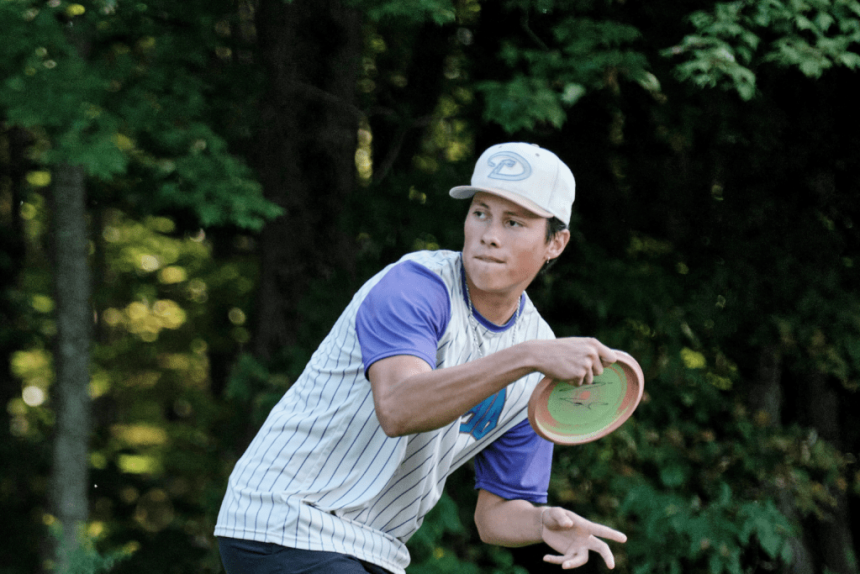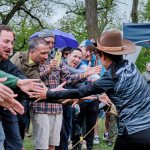As the world becomes increasingly aware of the importance of living a healthy lifestyle, people are looking for new and exciting ways to get fit and stay active. While traditional sports like running and cycling can be great options, they may not be for everyone. This is where disc golf comes in – a fun, low-impact, and accessible sport that can provide a great workout while challenging your mind and body.
A Brief Introduction to Disc Golf
Disc golf is a recreational outdoor activity that is similar to traditional golf, but instead of using clubs and balls, players throw flying discs towards metal baskets or “holes” on a course. The objective is to complete each hole in the fewest throws possible, with the goal of achieving the lowest score at the end of the round.
The Physical Benefits of Disc Golf
Disc golf is an excellent way to improve your overall fitness and physical health. Here are some of the benefits:
-
Cardiovascular Health: Disc golf requires walking and running, which can help improve cardiovascular health by increasing heart rate and blood flow.
-
Muscle Strength and Endurance: Throwing a disc requires strength, power, and endurance in the arms, shoulders, and back muscles.
-
Balance and Coordination: Disc golf requires players to balance and coordinate their movements to accurately throw and catch the disc.
-
Flexibility and Mobility: The activity requires players to bend, twist, and move in different directions, which can help improve flexibility and mobility.
-
Weight Management: Disc golf can help with weight management by burning calories and building muscle mass.
The Mental and Social Benefits of Disc Golf
Disc golf is not just a physical activity – it also has many mental and social benefits:
-
Stress Relief: The calming and peaceful nature of the outdoors, combined with the focus required to play the game, can help reduce stress and anxiety.
-
Mental Clarity: The strategic thinking and problem-solving required to play disc golf can help improve mental clarity and focus.
-
Social Connection: Disc golf is a social sport that allows players to connect with others who share similar interests.
-
Personal Challenge: Disc golf provides a personal challenge, as players strive to improve their skills and achieve their goals.
Getting Started with Disc Golf
So, how do you get started with disc golf? Here are some tips:
-
Find a Course: Look for local disc golf courses in your area, or search online for courses near you.
-
Borrow or Buy Equipment: You’ll need a few basic discs to get started. You can borrow from a friend or buy your own.
-
Learn the Basics: Watch tutorials or take a lesson from an experienced player to learn the basics of throwing and playing.
-
Join a Community: Look for local disc golf clubs, groups, or online forums to connect with other players and learn more about the sport.
Conclusion
Disc golf is a fun and rewarding sport that can provide numerous physical, mental, and social benefits. Whether you’re a seasoned athlete or just looking for a new way to stay active, disc golf is an excellent option. With its low-impact nature and accessibility, it’s easy to get started and begin reaping the rewards. So why not give it a try? Grab a disc and get ready to drive your fitness forward!
FAQs
Q: Is disc golf a good workout? A: Yes, disc golf can be an excellent workout, providing cardiovascular exercise, muscle strength and endurance, and flexibility and mobility.
Q: Is disc golf easy to learn? A: Yes, the basics of disc golf are easy to learn, but mastering the game takes practice and patience.
Q: Can anyone play disc golf? A: Yes, disc golf is an inclusive sport that can be played by people of all ages and abilities.
Q: Are there professional disc golf players? A: Yes, professional disc golf players compete in tournaments and leagues, and the sport is gaining popularity as a professional discipline.
Q: Are disc golf courses free? A: Many disc golf courses are free or low-cost, while others may require a fee or membership.
Q: Can I play disc golf in the winter? A: Yes, disc golf can be played in the winter, although the course may be snow-covered or muddy.








